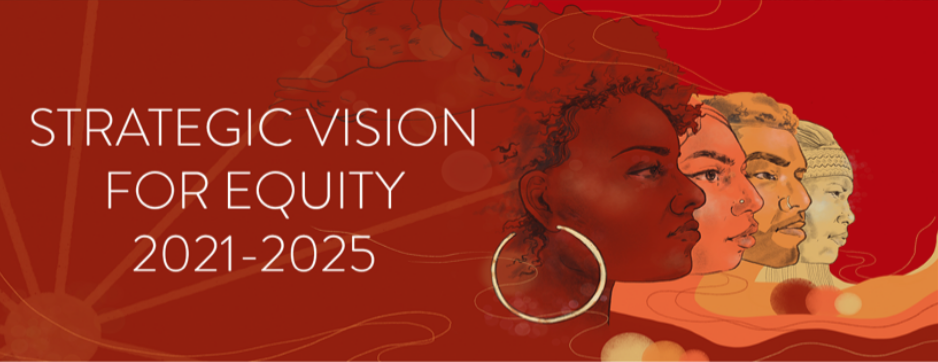
Strategic Vision for Equity 2021-2025
Presented to the Foothill-De Anza Board of Trustees on February 1, 2021
Table of Contents
Part One: Equity at Foothill College, Today & Tomorrow
- Equity Philosophy and Values
- Why Center Race?
- Historical Context
- State Legislation and Equity Initiatives
- Scholarship on Race and Equity
- Implicit Bias
- Validation Theory and Stereotype Threat
- Critical Race Theory
- Campus Feedback
A SYSTEMIC CHANGE FRAMEWORK FOR RACIAL EQUITY
- Dimensions of Change
- Areas of Impact
- A Tool for Facilitating Discussion and Processing Change
ACCOUNTABILITY STATEMENT
Part Two: Issues & Goals
- Issue 1: The onboarding process disproportionately impacts African American students
- Issue 2: There are large numbers of students of color who are not accessing, are ineligible for, or fall out of eligibility for available financial aid programming
- Issue 3: More recent focused outreach with a specific intent to increase access and enrollment of Latinx and African American students doesn’t readily connect back to a larger strategy to support and retain these populations
- Issue 4. Lack of coordinated infrastructure for basic needs services at the college (psychological services, food pantry, transportation, homeless referrals) can make it prohibitive for students of color to access services
- Issue 5. Lack of a sense of belonging, safety, and space allocation for students of color.
PROGRESS
- Issue 6. Many programs perpetuate structural racism by failing to educate students in the history and ongoing racism implicit and explicit in their disciplines.
- Issue 7. Insufficient culturally responsive, relevant and sustaining pedagogy and other asset-based approaches in teaching and serving our students of color
- Issue 8. Microaggressions and unconscious bias negatively affect experience and learning for students of color.
- Issue 9. Lack of a college-wide retention plan for students of color to progress through their academic career at Foothill.
- Issue 10. Lack, or underutilization of campus support resources (tutoring, career center, transfer center, etc.)
- Issue 11. Students accessing our classes and services online are not receiving comparable spaces, resources, and services as students who access them on campus
COMPLETION
- Issue 12: Program and Service Area assessments did not invoke meaningful discussion and action around equity efforts
- Issue 13: Across the California Community College system, all students are not succeeding in comparable rates at reaching their educational goals
GLOSSARY
ENDNOTES
Previous Page | Next Page | Table of Contents

Questions?
Please contact us!
Office of Equity and Inclusion
Administration Building, 1944

